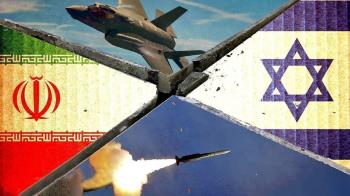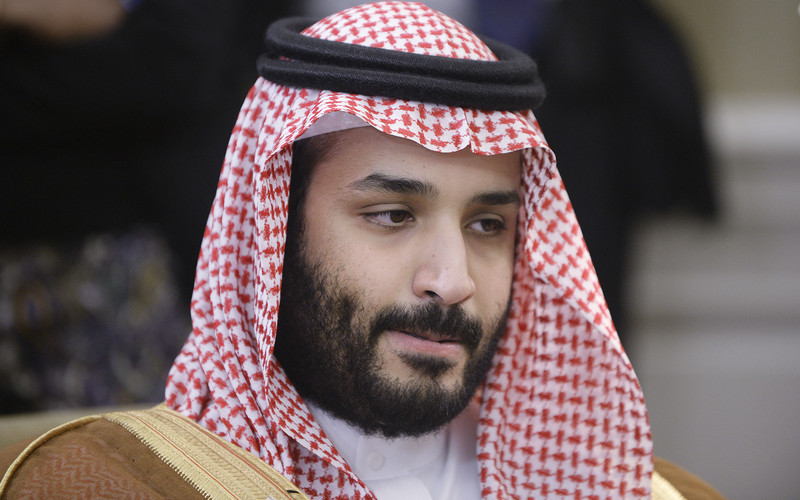Alwaght- The Arab countries are set to meet in Algeria on November 1 and 2 to discuss settlements to the Arab world challenges in line with programs defined for Arab League. Though Algerian officials have tried to bring all of the Arab leaders to the summit, which is being held in unstable world conditions, Saudi Arabia has decided not to attend.
Saudi Crown Prince Mohammed bin Salman in a phone conversation with the Algerian President Abdelmadjid Tebboune reportedly “apologized for not being able to participate in the Arab summit.” The Saudi royal court has claimed that the crown prince is skipping the meeting on doctor's advice. Saudi Arabia has also canceled his upcoming trip to South Korea in order to avoid suspicions among the Arab countries about Bin Salman's absence in November summit.
The health condition excuse to justify Prince Mohammed’s skipping of the key Arab summit is even not justifiable for the Saudis themselves. If the main excuse is the coronavirus, the pandemic has gone now and the World Health Organization (WHO) confirms that the fatal disease is defeated globally. So, very likely his absence has to do with the Arab kingdom's failed regional policies the responsibility of which the Saudis are evading.
Non-commitment to the Palestinian cause
Algeria summit, which was previously planned for September, was postponed due to some issues and is scheduled to be held next week with the presence of the heads of member states. Since Palestine has been the most important issue of the Arab League since its establishment, and since the tensions in the West Bank between the Palestinians and the Israeli regime have intensified in recent weeks, Palestine is expected to make the top agenda of the meeting. Having in mind that in mid-October all the Palestinian groups resolved their differences and signed a reconciliation agreement with the mediation of Algeria for the first time, Algerian government intends to put Palestine as a priority on the agenda of the upcoming meeting in order to make a decisive decision about the decades-long crisis.
Considering this reality, bin Salman's absence is a kind of escape of accountability and commitment to the Palestinian cause. Over the past decades, Saudi Arabia has taken steps towards normalization with the Israeli regime. Although it declined to sign a formal deal with Tel Aviv, Riyadh encouraged countries like the UAE and Bahrain to do so in order for other Arab sheikhdoms to follow in their tracks. In the same day that the kingdom aligned its policy with the Israeli regime, it abandoned advocacy to the Palestinian cause, and thus it does not take part in a meeting possibly to condemn the normalization process. By attending this meeting, Bin Salman will have to sign the final statement of this meeting against his will, which always contains important terms in support of Palestine and condemnation of Israeli crimes. For this reason, the Saudis do not want to participate in such a meeting, which imposes political obligations on them to defend the Palestinian cause and stand up against the Israeli occupation. Actually, signing of the closing statement of the summit by Saudi Arabia will prolong the normalization process.
Saudi Arabia is so infatuated with the Israelis that it is counting the seconds for normalization, and for Tel Aviv’s happiness, it even approved heavy sentences for those against the normalization. Driven by the new laws, the Saudi Criminal Court recently sentenced a person to 25 years in prison for opposing the normalization of relations with the Israeli regime. With such rulings, Riyadh intends to silence any opposition voice against normalization and slowly pave the way for establishing relations with Tel Aviv. Such sentences are even stricter than the laws of the European countries that have considered punishments for the deniers of the Holocaust, and this glaringly shows the excessive desire of Riyadh for normalization. Although Saudi Arabia has not officially signed the normalization agreement with the Israeli regime, behind the scenes it has close economic relations with it. Earlier, news reports suggested that Bin Salman allocated two billion dollars to invest in the economic sectors in the occupied territories, and also the Saudi airspace has been opened for flights to and from the occupied territories.
From another aspect, Algeria tries to strengthen its position in the Arab world and turn into an active actor in the regional developments. This is in stark contrast to the policies of Saudi Arab that considers itself the leader of the Arab world under whose authority all Arab countries should be and advance their regional policies. So, by skipping the summit, bin Salman seeks to lighten the weight of Algeria and somehow show his discontentment with Algerian diplomatic moves especially regarding Palestine. Algeria is strongly opposed to the normalization and has already panned countries signed the so-called peace deal with Israel.
Escaping admission of defeat in Syria case
Yet another issue driving bin Salman's absence is that at the meeting, Syria return to the bloc is likely to be discussed so that the way is paved for Damascus to regain its seat after 11 years should the Arab countries give a green light. The Algerian president had earlier said that he intends to raise the issue of Syria's return to the Arab League at the upcoming meeting, and a few months ago, the Algerian foreign minister traveled to Damascus and raised this issue at meetings with the Syrian officials. Therefore, raising such an important issue in the Arab summit will be politically costly for the Saudis, because since the start of the Syrian crisis, they supported the terrorists shoulder to shoulder with the US and the Israeli regime in order to topple the the government of President Bashar al-Assad and replace it with one submissive to the West.
According to reports, Saudi Arabia, along with the UAE and Qatar, were the biggest sponsors of the Takfiri groups in Syria, spending billions of dollars on them to realize their grim plots, but only met their failure. Therefore, Bin Salman does not want to attend a meeting that is humiliating to Riyadh by all means.
At present, Saudi Arabia is stuck in the dilemma of either re-establishing relations with Damascus or continuing its enmity with it, and is yet to make a final decision. The increase in rumors of Syria's return to the Arab League comes at a time when the UAE, Sudan, and Egypt already resumed their relations with this country, and even Riyadh leaders have sent out signals for a rapprochement with Damascus, but they have so far declined to make an official bid.
Despite the fact that the Saudis seek to cover up their policy defeats in regional cases by skipping Algeria summit, their escape is like swimming against the stream and leads them nowhere.



























